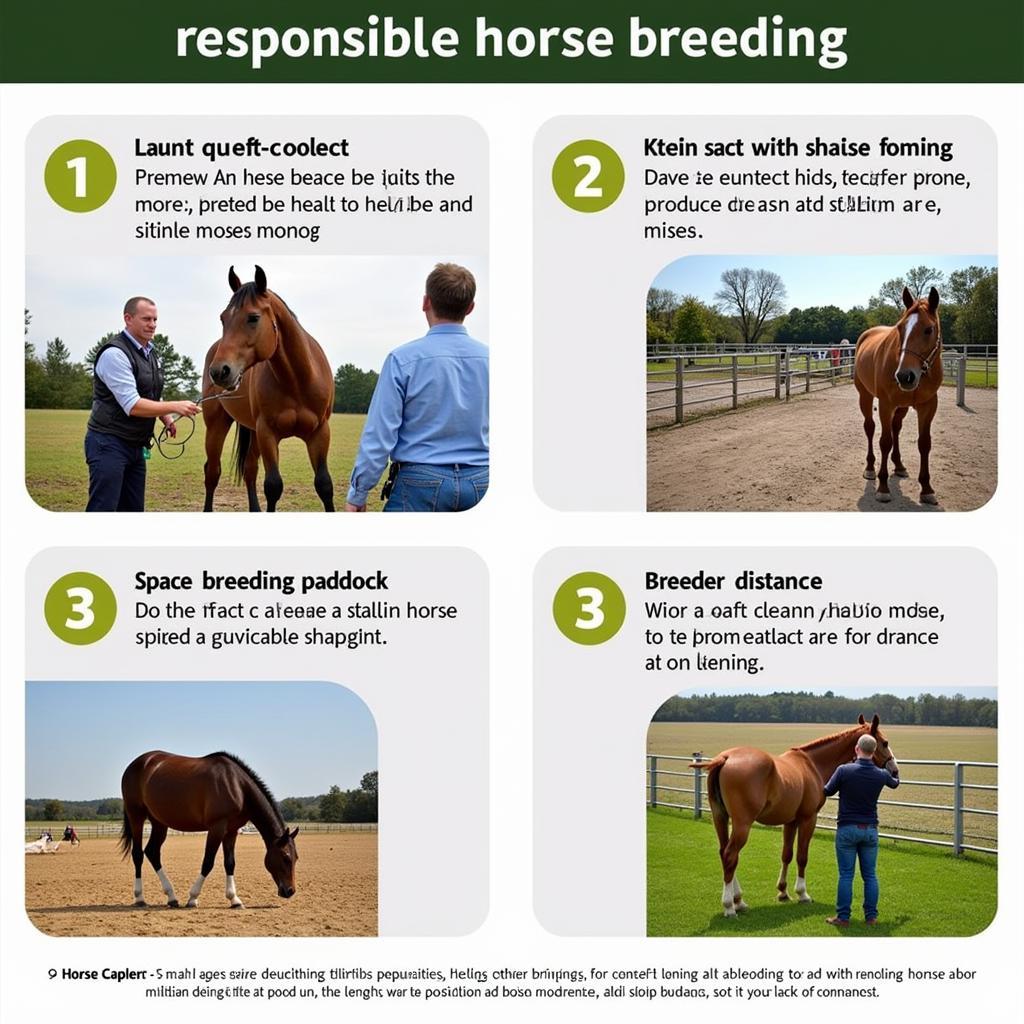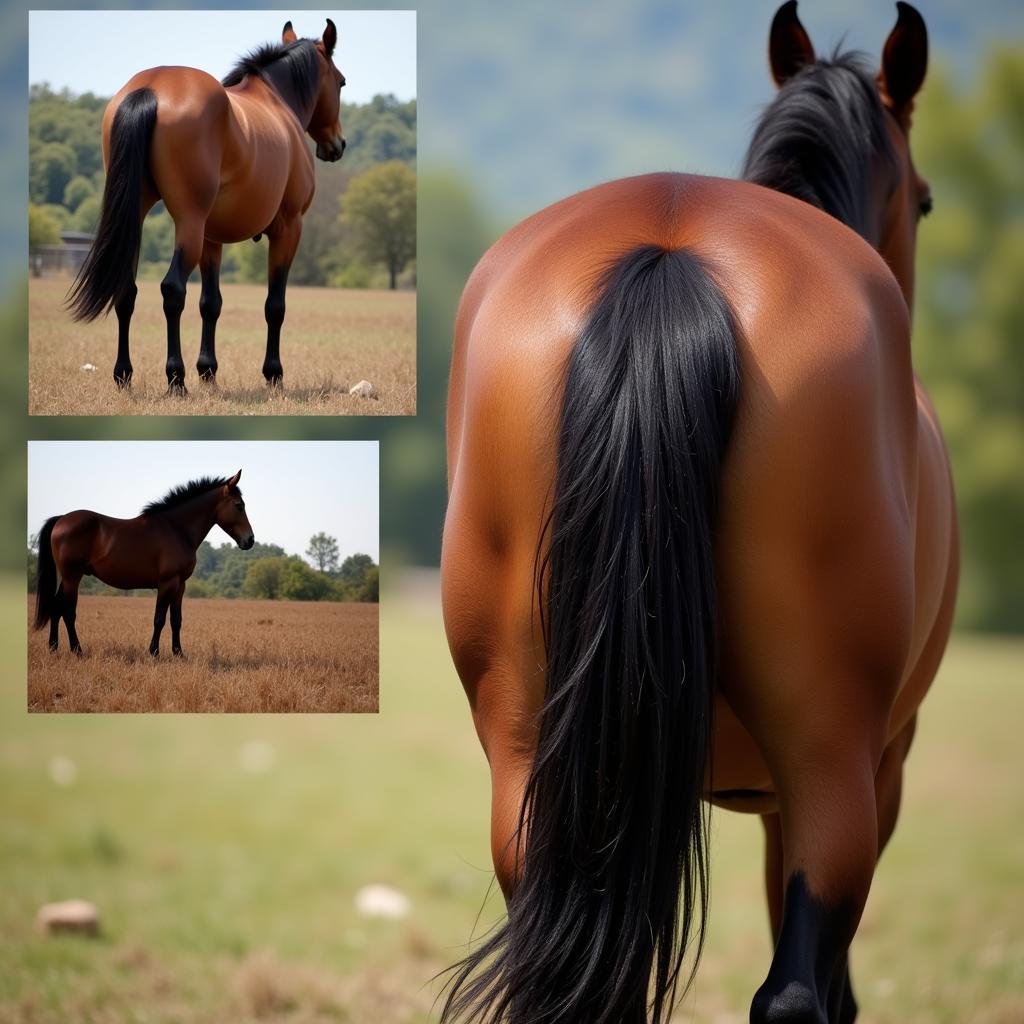Horse breeding behavior, sometimes searched for using explicit terms like “Brutal Horse Fuck,” is a complex topic that requires a nuanced understanding. This article aims to provide accurate information about natural equine reproductive instincts, responsible breeding practices, and addressing potentially harmful misconceptions surrounding this sensitive subject.
Natural Instincts and Breeding Practices
Horses, like all animals, have ingrained reproductive instincts. Understanding these natural behaviors is crucial for responsible horse ownership and breeding. While online searches for terms like “brutal horse fuck” may indicate a curiosity about equine mating, it’s important to distinguish between natural behavior and harmful practices. Responsible breeding prioritizes the well-being of the animals involved.
Stallions, driven by hormonal changes during breeding season, exhibit specific behaviors such as increased vocalizations, posturing, and interest in mares. Mares in heat display receptive behaviors, signaling their readiness to breed. These interactions, while sometimes appearing forceful, are part of the natural mating process.
Misconceptions and Responsible Breeding
It’s crucial to address the potential for misinterpreting natural breeding behavior as “brutal.” The term “brutal horse fuck,” often used in online searches, can perpetuate harmful misconceptions and even encourage abusive practices. Responsible breeding practices prioritize the physical and emotional well-being of both the stallion and the mare. This includes ensuring proper health checks, creating a safe and controlled breeding environment, and respecting the natural timing of the animals.
 Responsible Horse Breeding Practices
Responsible Horse Breeding Practices
Ethical breeders understand the importance of genetics, temperament, and conformation in producing healthy and well-adjusted offspring. They also recognize the responsibility that comes with bringing new horses into the world, ensuring proper care and placement for foals.
The Importance of Education and Accurate Information
The prevalence of searches for terms like “brutal horse fuck” highlights the need for accurate and accessible information about equine reproductive behavior. Education is key to dispelling myths and promoting responsible breeding practices. By understanding the natural instincts of horses, we can better appreciate the complexities of their reproductive behavior and ensure their well-being.
Why is understanding natural horse breeding behavior important?
Understanding natural horse breeding behavior is essential for responsible horse ownership and ethical breeding practices. It ensures the well-being of the animals and contributes to the production of healthy offspring. (Answer in under 40 words.)
What are the signs of a mare in heat?
Mares in heat exhibit specific receptive behaviors, including frequent urination, winking of the vulva, and a lowered tail carriage. They also show increased interest in stallions. (Answer in under 40 words.)
 Signs of a Mare in Heat
Signs of a Mare in Heat
Conclusion
Understanding natural horse breeding behavior is essential for responsible horse ownership and ethical breeding practices. While online searches may use explicit terms like “brutal horse fuck,” it’s crucial to differentiate between natural instincts and harmful practices. By prioritizing the well-being of the animals and seeking accurate information, we can promote responsible horse breeding and dispel potentially dangerous misconceptions.
FAQ
- What is the typical breeding season for horses?
- How long is a mare’s gestation period?
- What are the key considerations for choosing a stallion for breeding?
- How can I learn more about responsible horse breeding practices?
- What are the potential risks associated with horse breeding?
- How can I identify a reputable horse breeder?
- What are the legal requirements for breeding horses in my area?
Need help with horse breeding or pet care? Contact us at Phone: 0772127271, Email: [email protected] Or visit us at: QGM2+WX2, Vị Trung, Vị Thuỷ, Hậu Giang, Việt Nam. We have a 24/7 customer support team.